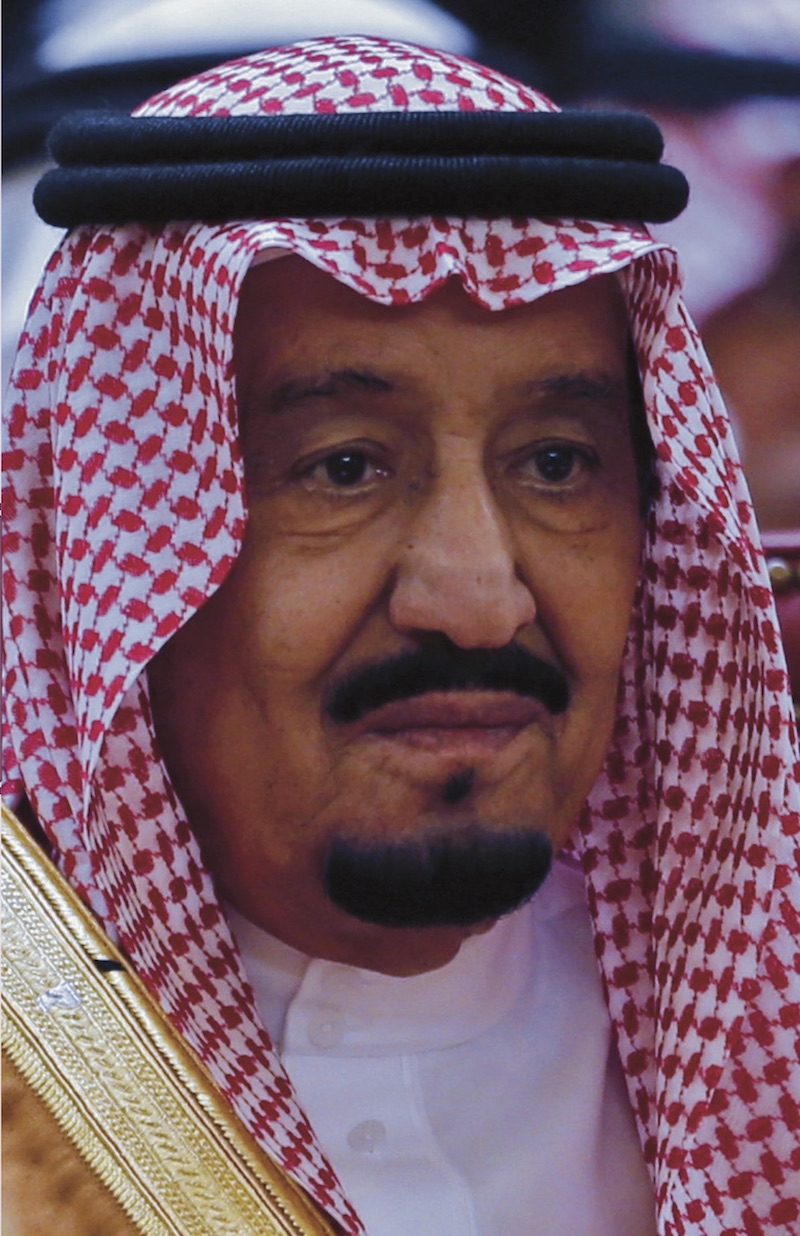HM King Salman bin Abdul-Aziz Al-Saud was proclaimed the 7th king of the Kingdom of Saudi Arabia in January 2015, after the passing of King Abdullah bin Abdul-Aziz. He had previously held the position of Crown Prince since June 2012. King Salman’s influence comes from being the absolute monarch of the most powerful Arab country and its control of: 1. the two holy cities of Makkah and Madinah, which millions of Muslims visit throughout the year; 2. exporting crude oil and refined petroleum products, which ensures its central international role; and 3. propagating Islam through its huge dawah network, which makes its influence felt in all Muslim countries. On 21 June 2017, King Salman appointed his son, Mohammed bin Salman bin Abdul-Aziz as Crown Prince of the Kingdom.
Birth: 31 December 1935 (Age: 90)
Source of Influence: Political
Influence: King with authority over 37 million residents of Saudi Arabia and approximately 14 million pilgrims annually.
School of Thought: Sunni, Salafi, Moderate Salafi
Status: Featured in current year
HM King Salman bin Abdul-Aziz Al-Saud was proclaimed the 7th king of the Kingdom of Saudi Arabia in January 2015, after the passing of King Abdullah bin Abdul-Aziz. He had previously held the position of Crown Prince since June 2012. King Salman’s influence comes from being the absolute monarch of the most powerful Arab country and its control of: 1. the two holy cities of Makkah and Madinah, which millions of Muslims visit throughout the year; 2. exporting crude oil and refined petroleum products, which ensures its central international role; and 3. propagating Islam through its huge dawah network, which makes its influence felt in all Muslim countries. On 21 June 2017, King Salman appointed his son, Mohammed bin Salman bin Abdul-Aziz as Crown Prince of the Kingdom.
Custodian of the Two Holy Mosques: HM King Salman has significant influence in the global Muslim community through his custodianship of the two holy cities of Makkah and Madinah. Makkah is the main pilgrimage site for 2 billion Muslims. Each year approximately 2-3 million pilgrims perform the Hajj. In addition to this, approximately 13 million pilgrims (including Saudi residents and GCC citizens) perform the Umrah, “the lesser Hajj”, throughout the year. A multi-billion-dollar expansion to the two mosques is well under way.
Oil Reserves: HM King Salman reigns over a land of massive crude oil reserves—Saudi Arabia has approximately 20% of the world’s proven oil reserves—making it a key player in the global petroleum industry. Approximately 63% of the country’s revenue still comes from oil, despite long-term strategies to diversify the country’s revenue streams.
Head of the World’s Largest Dawah Network: King Salman is also head of the most extensive dawah network of missionary Muslims in the world, promoting the Salafi brand of Islam. Salafism is historically rooted in Saudi Arabia and owes its global spread to the financial backing of Saudi Arabia.
Humanitarian: The King Salman Center for Relief and Humanitarian Aid (KSRelief) was established in 2015 and delivers aid internationally to victims of civil war and natural disasters. KSRelief has funded more than 2,000 projects in 92 countries, spending over $6 billion. Projects included assisting Syrian patients living in the Zaatari Syrian refugee camp in Jordan and providing prosthetic limbs to Yemeni civilians wounded during the war. KSRelief also partnered with UNICEF and UNHCR to support families affected by war.
Vision 2030: A number of mega projects and initiatives still continue despite a scale back in some of them. The linear smart, zero carbon city with “vertically layered” buildings, NEOM, will now be 2.4km long (reduced from 170 km). The Kingdom has also sponsored an array of sports, including golf and football, which brought attention to itt Political and economic strategic changes are also underway as part of the Vision 2030.
Key Appointments: The transfer of power from the sons of the founder of Saudi Arabia, King Abdul-Aziz, to the new generation, which some feared would be an issue that would split the country, has been remarkably smooth so far. HRH Prince Mohammed bin Salman is the second Crown Prince from the new generation appointed by King Salman. These appointees have brought changes in law which have had monumental social effects, changes such as allowing women in Saudi Arabia to move freely and drive, and the promotion of cinemas and music concerts.
Normalisation: Recent years have seen several Arab countries normalise relations with Israel, and Saudi Arabia has been keen to follow suit. The Israeli genocide in Gaza has complicated matters but political will to normalise relations with Israel remains.
“My primary goal is to be an exemplary and leading nation in all aspects, and I will work with you in achieving this endeavour.”
$15 million pledged in aid to Rohingya Muslims
5 World Heritages sites
News about Salman bin Abdul-Aziz Al-Saud
- No approved news items yet.



